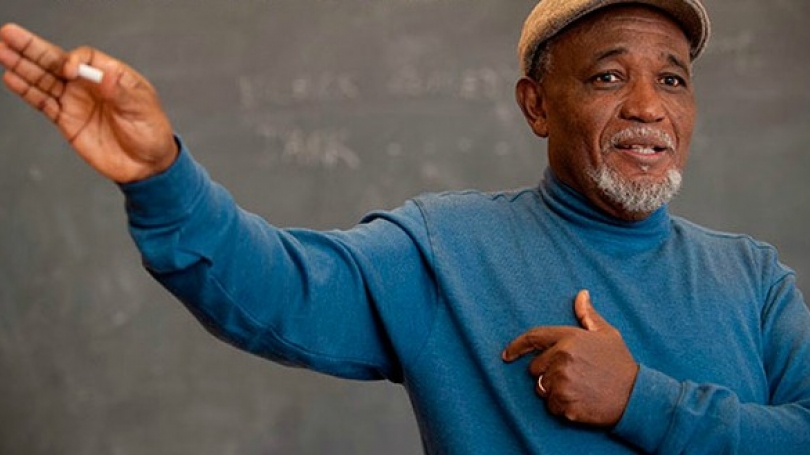
- Undergraduate
- Foreign Study
- Research
- News & Events
- People
Back to Top Nav
Back to Top Nav
Back to Top Nav
The African and African American Studies Program announces that Playwright Mohammed Ben Abdallah will be in residence at Dartmouth College from July 5-13, 2017. He will be working on a new play based on the life of a British colonial governor and his English and Asante wives living on the Gold Coast of West Africa in the mid 19th century. He will be visiting several classes and meeting with faculty and students. Please contact Jesse Shipley jesse.w.shipley@dartmouth.edu if you are interested in being a part of any activities.
Mohammed Ben Abdallah is a groundbreaking playwright and former politician from Accra, Ghana. He holds an MFA from University of Georgia and a PhD from University of Texas, Austin. While a member of the revolutionary PNDC government in the 1980s and 1990s, he established the National Commission on Culture and built of the National Theatre of Ghana with its resident companies the National Theatre Company, National Dance Company, and National Symphony Orchestra.
Since the 1970s, Abdallah’s work as a playwright has pushed the creative boundaries of theater, linking Western and African dramatic traditions by developing a theatrical style he has termed Abibigro (African Play), meaning Total African Theatre. His plays developed in this style emerge from collaborative workshops involving musicians, actors, and dancers that encourage the inclusion of various eclectic styles into the changing script. He has aimed to blend multiple African and diasporic styles of music, dance, storytelling, comedy, dramatization, and, experimentation. His work particularly focuses on the role of the storyteller as a figure of the avant-garde rather than one relegated to tradition. His first play The Slaves brought him international attention in portraying the collective terror and personal moral tensions amongst a group of captured prisoners held in a slave dungeon on the west coast of Africa. His subsequent plays including The Trial of Malam Ilya, Fall of Kumbi, Verdict of the Cobra, Land of a Million Magicians, and Witch of Mopti established him as a major voice in theater and developed his style of Abibigro theater in his writing and staging. His work expands out from the literary modernisms of Ghana and Nigeria as well as the West African storytelling tradition of Ananse, the Spider Trickster. His plays meld Brechtian staging and politics with the humorous narratives and magical realism of Ananse tales. He brings Ghanaian forms together with multiple influences from across the African continent and its diasporas blending music, dance, drama, and physicality into his plays--what he terms multi-media African Theater. His work presents indirect moral narratives that speak to the histories underlying modern and postmodern African life. Viewers are led to confront not only the moral struggles of the characters but the very conditions of performance itself. His most recent major production Song of the Pharaoh premiered at the National Theatre of Ghana in 2013 to critical acclaim.